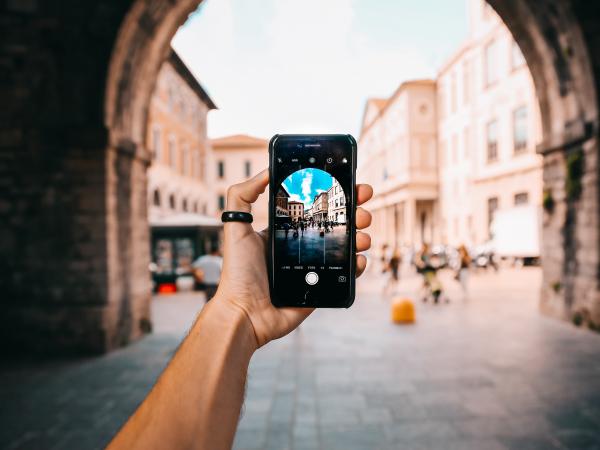
NECSTouR Solutions for Rebuilding the Tourism Sector after the COVID-19 Crisis at ERRIN Webinar
-
26/05/2020
-
Members
NECSTouR - represented by Cristina Núñez – has been invited by the Cultural Heritage and Tourism Working Group of ERRIN Network to join an online debate on Rebuilding the Tourism Sector after the COVID-19 crisis and to share NECSTouR views and regional best practices for recovery strategies on the European tourism sector in the post-COVID-19 crisis context.
The aim was to provide members with information on the tools and policies that are being developed by the European Commission, and discussing joint actions coordinated by European networks to raise awareness and increased support for the sector. Two NECSTouR members also intervened to introduce their regional best practices: VisitScotland and Balearic Islands
Recovery through a phase based approach
Cristina Núñez explained how NECSTouR has adapted its action to support members in giving response to the crisis through a phase-based approach: emergency measures, exit strategies, preparing day after, longer term recovery. Read More
“Sharing regional examples is at the core of our action – NECSTouR Managing Director stated – since the regional tourism authorities and their DMOs have been playing a key role by informing and protecting citizens, visitors and workers of the smallest of the sector; monitoring the cross-sectorial impact beyond tourism visitor markets and business sectors and defining economic projections and Start defining the recovering plans key elements for future tourism ecosystems more resilient and sustainable.”
The role of the European Commission and Regional Networks in the recovery
As Cristina Núñez highlighted, NECSTouR welcomes the European Communication “Tourism and transport and beyond” and applauds the participatory approach of the Commission translated into an open dialogue with stakeholders including regions. While a number of valid recommendations and proposed actions are now on the table more detail is needed, many questions are still open now that the season is about to start and there are no signals of coordination between member states with regard to lifting the boarders.
The other key question open is about the investment possibilities to finance the dual transition of destinations – going greening by going digital – through the EU recovery plan and broader MFF.
NECSTouR believes that the Regional recovery plans should inspire the European one and remarked the importance of sharing good practices in this field. Indeed, NECSTouR Managing Director also pointed out the diversity of destinations’ landscapes in both countries between regions inside those: Proximity markets in leisure-oriented destinations can partly compensate while other are MICE destinations which must reconvert their offer to attract local and national visitors.
This is why interregional dialogue next to national is very important and European is crucial this is why the role of the Manifesto and the informal EU tourism-COVID-19 network is a key instrument to ensure dialogue with the Commission and to build this partnership for a strong European tourism policy and Recovery plan.
Transforming while building recovery
This will enable a serious work to build longer term tourism strategies tackling the business models transformation while building recovery: the tourism of tomorrow which Commissioner Breton calls for and the 5 “S” of the sustainable tourism of tomorrow that NECSTouR has been building and which now must be accelerated having safety and resilience as the top priority but also keep in mind the Sustainable Development Goals promoted by the WTO.
She concluded by stating “If the Green Deal and Digitalisation are the pillars for tourism to recover in a sustainable way there are two key elements to consider: the socio cultural balance of tourism at destination level – we can now build better places to live for better places to visit - and the smart data policies as we work in the S3 platform Digitalisation and Safety for Tourism.”
It is time now for rescuing and resuming, start planning the longer-term investments for the tourism of tomorrow, and share good practices and foster cooperation between NECSTouR and ERRIN for a more sustainable and resilient European tourism.
The tourism recovery will set the path for the whole European recovery, not only for its economic multiplier effect but also to reinforce and protect the European project: Travelling around Europe and re-building our identity is crucial from the socio-cultural perspective and an opportunity to offer sustainability and responsible consumption for all of us to adopt a responsible behaviour when travelling and being visitors.
Related Links
- Key messages from ERRIN Website
- PPT Presentation by Ms Ramune Genzbigelyte-Venturi, Policy officer for Tourism, European Commission
- PPT Presentation by Mr Manuel Porras, Managing Director Balearic Islands Agency for Tourism
- PPT Presentation by Prof. Dr. J. Klijs, Breda University of Applied Sciences